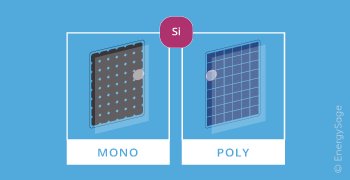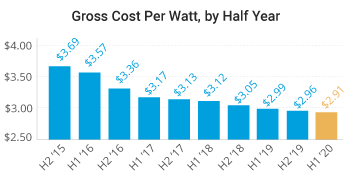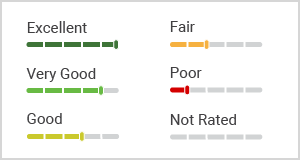Solar Panels
Get Solar Quotes OnlineEnergySage 2024 Solar Panel Buyer’s Guide
Solar panel buyer’s guide
Types of solar panels

Solar panel efficiency
Solar panel cost

How do solar panel warranties work?
The EnergySage solar panel rating system

Frequently asked questions about solar panels
Whether you have experience shopping for solar panels or you’re totally new to researching renewable energy, we strive to provide comprehensive information to help you make a final decision. Check out a few more of our customers’ most frequently asked questions.
How many solar panels do I need for my home?
The average home needs between 20 and 25 solar panels to fully offset their utility bills with renewable energy. This number depends on a variety of factors including location, climate, panel efficiency, and individual panel specifications. For more information, read our article that helps calculate how many solar panels you will need using relevant examples.
Are solar panels worth it?
Yes, solar panels are worth the investment if you’re looking for a long-term renewable energy solution. In general, while solar panels are worth the money, your return on investment (known as a solar payback period) will depend on a few key factors like system size, your electricity use, and your financing or payment method.
Which brand of solar panels is the best?
Overall, finding the best solar panel brand comes down to comparing their efficiency, temperature coefficient, and warranty. Currently, SunPower, LG, REC, and Panasonic make the best solar panels due to their high efficiencies, competitive pricing, and 25-year warranty. If you’re looking for more detail, read our article that compares the top brands and solar panel products.